Guest Post By Jacqueline Wald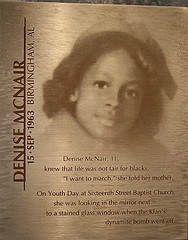 Photo by simonse15 via Flickr http://flic.kr/p/2AriYN Photo by simonse15 via Flickr http://flic.kr/p/2AriYN We never crossed paths, Denise and I. That would have been impossible. She lived in Birmingham, Ala., and I was way up north in Marshalltown, Iowa. We did a lot of the same things, though. We both liked dolls and belonged to a Brownie troop. We both organized skits, dance routines and performances for the neighbors in our garages. We both dreamed of husbands, children and careers. In my life, a rewarding job, marriage and motherhood all became a reality. Denise's life ended at age 11. I did not know of Denise McNair until Sept. 18, 1963, the day of her death. I was in my synagogue for Sunday school when we were summoned from the classrooms to assemble in the sanctuary. The rabbi solemnly addressed us from the pulpit. His sermons often contained messages of the civil rights struggle in the South. He spoke of the need for social justice and its connections to our lives and community. On that particular Sunday, he had the radio on in his office and heard about the bombing of the Sixteenth Street Baptist Church in Birmingham, in which four little girls had been killed. "Why does this matter to us?" he asked. "Why is it important?" As I remember, the gist of his message that day was that a crime against one group is a violation of us all. He said if you change the words "colored church" to "Jewish synagogue," one can see that mindless disregard for human life can be directed at any group. After further discussion of the day's events, we were dismissed. Communication did not approach Internet speed in 1963. The grainy images of Addie Mae Collins, Cynthia Wesley, Carole Robertson and Denise McNair did not appear in the newspaper or television until the next day. Three of the girls were 14. Denise was 11. So was I. In her photo, Denise wears a coat and matching hat. She is a very soft, sweet-looking child, slightly smiling. The image gripped me. I stared at the picture of her. I was incapable of looking away. Here was a girl, just my age, blown apart by a bomb when she was in church, of all places. Had she been frightened? Did she cry out? What did it feel like to get blown up by a bomb? Did she suffer? Ever since that day, Denise has haunted me. I have carried her with me at some level of consciousness all my life, like a lovely dream that I never got to finish. How deeply she has been ingrained in my psyche became apparent when the SMU Civil Rights Pilgrimage took us to Birmingham in spring 2005. The Sixteenth Street Baptist Church was first on our itinerary. I sat in the sanctuary where Denise had worshipped. I saw the recessed stairway where the bomb had been planted. I saw that familiar photo of her looking out at me. Those September events were posted on the wall in the museum area of the church basement. Seeing it again was like reading it for the first time. I felt the heaviness, the nausea, the loss of those four little girls. How many times I had thought of Denise over the years – on my birthdays, when I graduated from high school and college, when I cradled my newborn babies in my arms. There was the nagging, wordless sensation that she would do none of these things. I remembered when her parents had two more daughters, young girls who would never know their older sister, Denise. I noted when Joan Baez wrote the song "Birmingham Sunday," which included the lyrics "On Birmingham Sunday a noise shook the ground, and people all over the world turned around." I thought of Denise when Spike Lee went to Birmingham to make the film "4 Little Girls" 30 years after the church bombing. Sitting there in that church in March 2005, the full force of September 1963 finally hit me. A dam of tears unleashed as I wept for Denise, a sister of my soul. Denise McNair never intended to become a symbol of the civil rights movement. But, like Anne Frank in the Holocaust, her image will always be a poignant reminder of man's inhumanity to man. If all children can be taught, when they hear her story and see her sweet young face, to choose an alternative path to violence and destruction, her death will not have been in vain. Rest in peace, Denise. Wald's 2007 remembrance originally appeared in The Dallas Morning News. 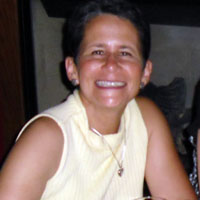 Jacqueline Wald is a professor of Spanish at Richland College. She is reachable at [email protected].
0 Comments
The Careers/Job Hunt edition (March 2012) of Public Relations Tactics includes an article I wrote. The path of perseverance: Carving out a new career explores the journeys of three former journalists who transitioned successfully to public relations. 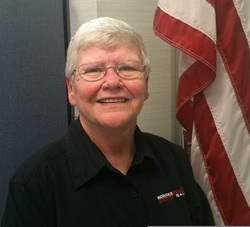 Ginger Anderson is a career development facilitator with RESCARE, Inc. Ginger Anderson is a career development facilitator with RESCARE, Inc. Ginger Anderson is a career development facilitator with RESCARE, Inc. and works at the Richardson Workforce Center in Richardson, Texas. Q: What are the first steps a career changer should take when beginning a job search? A: Before you start a job search, know what your minimum personal budget is and what salary range will meet that. Don’t expect to make what you did at your last job. Ask yourself ‘what is the absolute minimum I can live on'? Anything above that is gravy. Q: How can the career changer obtain experience in a new industry? A: Do volunteer work to hone the skills you need. We have to show the employer that we are trying to increase our skills... Then during the interview, tell the hiring manager that you are willing to learn from the bottom up—it’s the best way to learn about a new industry. Assure the prospective employer that you are there to help the company grow and obtain it goals. Anderson is reachable at [email protected]. 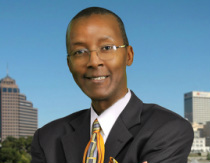 Wiley Henry has transitioned from journalism to PR. Wiley Henry has transitioned from journalism to PR. Wiley Henry, a portrait artist, photographer and former newspaper editor, went through a period of unemployment until he landed a senior account services specialist/writer job. Q: Was your faith tested [during your unemployment]? A: Oh yes, definitely tested. I stayed on bended knees hoping and praying that the Lord would open a door for me. And He did. And it was definitely a faith-tester ... . Every time I thought I was getting close to landing a job, it failed. It didn’t come through. And also, just when unemployment [benefits] were about to run out, that’s when I got the call from Deidre [Malone, who hired him to work for her firm, Memphis-based The Carter Malone Group LLC]. I had about a month left [of unemployment benefits]. That’s God... . We are taught in church that God is an on-time God [and] that He was will be there when you least expect Him to be. I’m a living witness that He will be right there. Henry is reachable at [email protected]. 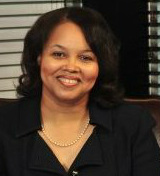 Before she founded her PR firm in Memphis, Tenn., Deidre Malone was a broadcast journalist. Before she founded her PR firm in Memphis, Tenn., Deidre Malone was a broadcast journalist. Deidre Malone runs her own PR firm, The Carter Malone Group LLC, based in Memphis, Tennessee. She hired Wiley Henry to help her firm's clients. Q: What advice do you have for journalists who may be considering PR? A: Seek a mentor. When you are a journalist sometimes you have an affinity to not want to deal with public relations professionals. This is an awesome career to have … . A great deal of what we do is strategic communications. I recommend they seek out small PR firms that may need assistance like Wiley ... . You can learn to pitch and put together a communications strategy. That’s something you can learn. Her firm is reachable at http://www.thecartermalonegroup.com/. 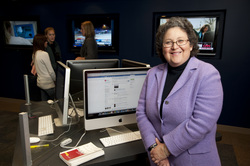 Yolette Garcia successfully transitioned to PR from running the newsroom at KERA in Dallas. Yolette Garcia successfully transitioned to PR from running the newsroom at KERA in Dallas. Yolette Garcia left her news management job at KERA in Dallas because she wanted a new career path. She joined SMU's Annette Caldwell Simmons School of Education and Human Development as assistant dean of external affairs and outreach. Here is an audio excerpt from my January 2012 interview with her: 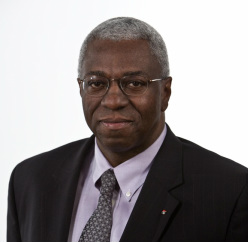 Anthony HIcks, APR, is PR director at a Memphis nonprofit. Anthony HIcks, APR, is PR director at a Memphis nonprofit. Anthony Hicks, APR, is director of public relations and development at Shelby Residential and Vocational Services in Memphis. Hicks, formerly a staff reporter at the Arkansas Gazette, has advice for journalists or anyone else considering a job in PR. Q: Do you have any regrets about PR? A: The biggest challenge is managing expectations of senior executives. Unfortunately, public relations is a difficult field to understand if you are not experienced in it. Consequently, many organizational leaders do not have experience in public relations. That means the public relations person is expected to work miracles. Have a thick skin. Be strategic. Always be strategic. Q: Why get the APR (Accreditation in PR credential)? A: I got it because I wanted to be recognized as the best in my field. I wanted to know for myself that I had the best skills that my industry required and I wanted some authentication. You have to be in PR for a while to get it. I knew it would be a valuable commodity to have. PR is highly competitive so anything you can do to differentiate yourself, the better off you are. Q: Any other advice? A: Before and after joining a company, learn its business thoroughly. Once hired you will consistently use your innate news gathering skills to identify programs and initiatives in the company that will make good news stories -- adapted to the press release format. A reporter’s instinct will serve you well in public relations and media relations. Understand that once you make the transition, reporters are not publicists for the company you work for. For more information about Shelby Residential and Vocational Services, go to http://www.srvs.org/ 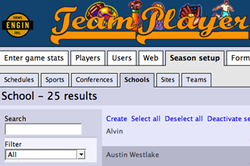 Screen capture from NewsEngin's website The Dallas Morning News uses software from a company founded by former journalists to report scores online in "real time" for area high school football teams, resulting in “millions of page views,” according to a newspaper online editor. The Morning News is the “only newspaper in America with real-time scoring,” said Kyle Whitfield, SportsDayHS's interactive community editor. He said the newspaper uses software from NewsEngin[Inc.], “a third party vendor in St. Louis” coupled with a squadron of freelancers that cover 200 Dallas-Fort Worth-area high schools. NewsEngin TeamPlayer “NewsEngin TeamPlayer is a browser-based application that couples the passion of high-school sports with intuitive technology to give news organizations a powerful backbone for their community Web sites and print publications. TeamPlayer can collect, organize and automatically reverse-publish all of a region’s high school sports scores and statistics,” according to NewsEngin's website. NewsEngin recently announced it has added "70 publications to the roster of news organizations that rely on its Ampere suite of cloud-based content production services." High School Football Sells SportsDayHS’s freelancers cover football games from August through December including reporting statistics and writing brief stories. The statistics go into a database and show up on SportsDayHS’s website. Whitfield said the information can be accessed on smartphones also. With so many eyeballs piercing the website and smartphones to get this unique content, high school is “easiest to sell and most profitable,” according to Whitfield, adding, advertisers want a local audience. Want a PT Job? In fact, the newspaper's sports department will host training sessions this summer for freelancers covering the upcoming season. Are you interested in earning some extra cash and having fun at the same time? According to an email Whitfield sent me, this is a part-time job that pays. College students and others who have experience covering high school football and already live in the Dallas-Fort Worth area should apply, especially if you can write well on deadline and have solid computer skills. To apply, send your resume and clips to SportsDayHS online editor Kyle Whitfield- [email protected]. 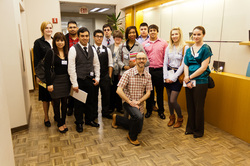 Richland College students and me with Photo editor Michael Hamtil (kneeling) at "The Dallas Morning News" 2.23.12, courtesy of "The Dallas Morning News" Richland College Students Tour Newspaper Whitfield, a LSU graduate, told some of my Richland College students about his job and how he got it during a Feb. 23, 2012 tour of the Morning News. He talked about editing his college newspaper, studying late into the night and having a strong work ethic. Richland students observed a morning news meeting and also met Photo editor Michael Hamtil (in picture above) who showed us the photo selection process. Deputy Managing Editor/Sports Bob Yates was our gracious tour guide. He gave us a detailed overview of the newspaper's operation and sections. Did you know the Morning News has won nine Pulitzer Prizes? (I was in the building the day David Leeson won his Pulitzer and it was a wonderful experience watching his elation.) Some of my students want to pursue careers in journalism, others are interested in public relations. Yates asked whether they wanted to be reporters or writers? After listening to their answers Yates said, “Be a great reporter, editors can help you [write well].” I recently joined Richland's adjunct faculty and I'm having a good time teaching news writing and, of course, weaving in New Media when it works. Sidebars and Pluses March is Women's History Month and I'm rereading excerpts of "With Ossie & Ruby: In This Life Together," a dual-memoir by Ruby Dee and Ossie Davis. Their rich journey in American theater continues to inspire. ### I recently learned that abolitionist Frederick Douglass was among several pioneering black newspaper editors. According to William S. McFeely, author of Frederick Douglass, "At least four other newspapers edited by African Americans were in existence when Douglass announced that the North Star would be published." Douglass announced his intention to publish North Star in a letter dated Oct. 28, 1847 to abolitionist and Quaker Amy Post, according to the book. ### From the Newseum's website: 'Up From Slavery: The Black Press' |
About the Author:Regina L. Burns, M.A., Project+, is an award-winning multimedia editor and journalist, specializing in Black history and African American stories at Harvest Reapers Communications. Her work has been published in Texas Highways magazine, WFAA-TV, The Dallas Morning News, the Fort Worth Star-Telegram as well as The Commercial Appeal, the Tri-State Defender and The Flyer, among others. Categories
All
Archives
January 2024
|

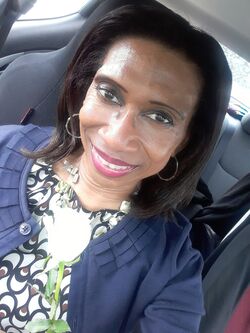
 RSS Feed
RSS Feed